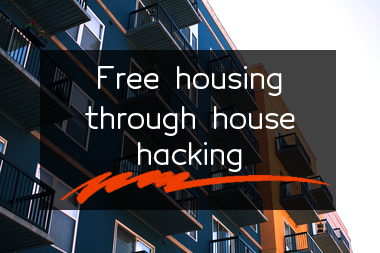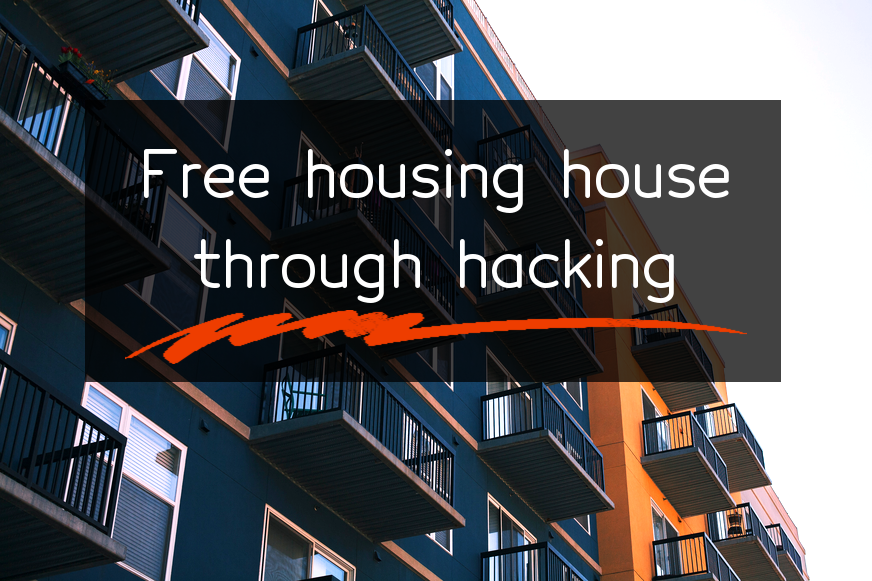House hacking is a real estate investment strategy where a person buys a property with the goal of generating income by renting out a portion of the property while living in another. This can involve renting out a room, a basement apartment, or a guesthouse, to generate enough income to cover some or all of the mortgage payments. House hacking can be a way to reduce the cost of homeownership, build equity, and increase cash flow, while simultaneously building a real estate portfolio. It is popular among young professionals looking to enter the real estate investing market while still maintaining the flexibility of renting.
What is house hacking?
House hacking is a real estate investment strategy in which the investor purchases a property with the intention of living in one or more of the units while renting out the others to tenants. This allows the investor to live in the property for free or at a reduced cost while generating rental income from the other units. House hacking can be achieved through a variety of property types such as single-family homes, condominiums, and multi-family buildings. It is often used by new real estate investors as a way to get started in the industry and build wealth through rental income and potential property appreciation.
How to get free housing: 14 house hacking strategies
House hacking is a strategy for buying a property and using it to generate income while also living in it. Here are some common house hacking strategies:
- 1Renting out a spare bedroom: This involves renting out an extra bedroom in your home while continuing to live in the property.
- 2Renting out a portion of your home: This involves renting out a portion of your home, such as a basement apartment or a separate guest house.
- 3Multi-unit property: A multi-unit property is a property that has two or more living units, allowing you to live in one unit while renting out the others.
- 4Airbnb: You can rent out your entire house or a room on a short-term basis using services like Airbnb.
- 5Renting out your garage: If you have a garage or extra parking space, you can rent it out to someone looking for storage or parking.
Overall, house hacking can be a great way to generate additional income and help offset the cost of your mortgage payments. However, its important to carefully plan your approach and ensure that you are comfortable with having tenants in your home before beginning a house hacking strategy.
Financing options for house hackers
House hacking is a popular real estate investment strategy where an individual purchases a multifamily property, lives in one unit, and rents out the rest of the units to cover the mortgage costs. Financing options for house hackers include:
- 1Conventional loans: These loans offer fixed or adjustable interest rates, require a down payment of at least 3%, and have strict requirements for credit scores and debt-to-income ratios.
- 2FHA loans: These loans are backed by the Federal Housing Administration and require a down payment of only 3.5%. However, they also require mortgage insurance premiums (MIP) and have strict property eligibility requirements.
- 3VA loans: These loans are available only to US military veterans and their families, and allow borrowers to finance up to 100% of the home value with no down payment.
- 4Home equity line of credit (HELOC): A HELOC is a revolving line of credit that uses the borrower's home equity as collateral. This option is suitable for house hackers who already own a primary residence and are looking to purchase a multifamily investment property.
- 5Private lender financing: This option involves borrowing money from a private lender or investor who is willing to fund the investment property. Private lenders typically require higher interest rates and shorter repayment terms than traditional lenders.
- 6Seller financing: This option involves negotiating with the property seller to finance the sale by offering a down payment and monthly payments. This option works best for properties that are owned by individuals rather than corporations.
Analyze house hacks like investment properties
Analyzing house hacks like investment properties involves evaluating the potential return on investment (ROI) of the property, taking into account the income generated from renting out a portion of the property.
Factors to consider when analyzing house hacks as an investment property include:
- 1Location: Properties in desirable locations have a higher rental value. A location with a high demand for rental properties will increase the rental income potential.
- 2Property value and purchase price: The value of the property and the price at which you purchase the house is a key factor in calculating the ROI. The lower the purchase price, the higher the ROI.
- 3Rental income: The income potential of the property is determined by the rental income generated. The higher the rental income potential, the higher the ROI.
- 4Expenses: The cost of owning and operating the property, including mortgage payments, utilities, repairs and maintenance, and management fees, impact the ROI.
- 5Tax implications: The tax implications of owning an investment property can impact the ROI. Expenses such as property taxes, mortgage interest, and depreciation can be deducted from rental income to reduce taxable income.
Analyzing house hacks as an investment property involves calculating the ROI based on these factors. A higher ROI is achieved by minimizing expenses, maximizing rental income, and finding properties in desirable locations.
Benefits of house hacking
- 1Reduced housing costs: House hacking allows you to live in your property while renting out a portion of it to others. This can help you offset or entirely eliminate your mortgage payment, reducing your overall housing costs.
- 2Increased income potential: House hacking can generate extra income that allows you to save more, pay off debt faster, or invest more in other areas of your life.
- 3Equity building: Homeownership can help you build wealth through equity appreciation. House hacking accelerates this process by allowing you to build equity faster through renting.
- 4Flexibility and control: House hacking provides flexibility when it comes to property use. You can choose to rent out rooms, a separate unit, or even the entire property to tenants depending on your goals and needs.
- 5Tax advantages: House hacking provides a tax advantage that traditional renters do not have, with the ability to deduct expenses such as property taxes, mortgage interest, and repairs.
However, house hacking is not for everyone, and there are also some cons to consider such as the responsibility of being a property owner, dealing with tenants, and ongoing maintenance costs. It is important to weigh the pros and cons and consult with a real estate professional before considering house hacking.
Just one more thing: if you liked the article, please like us on social media and share this article with friends.



